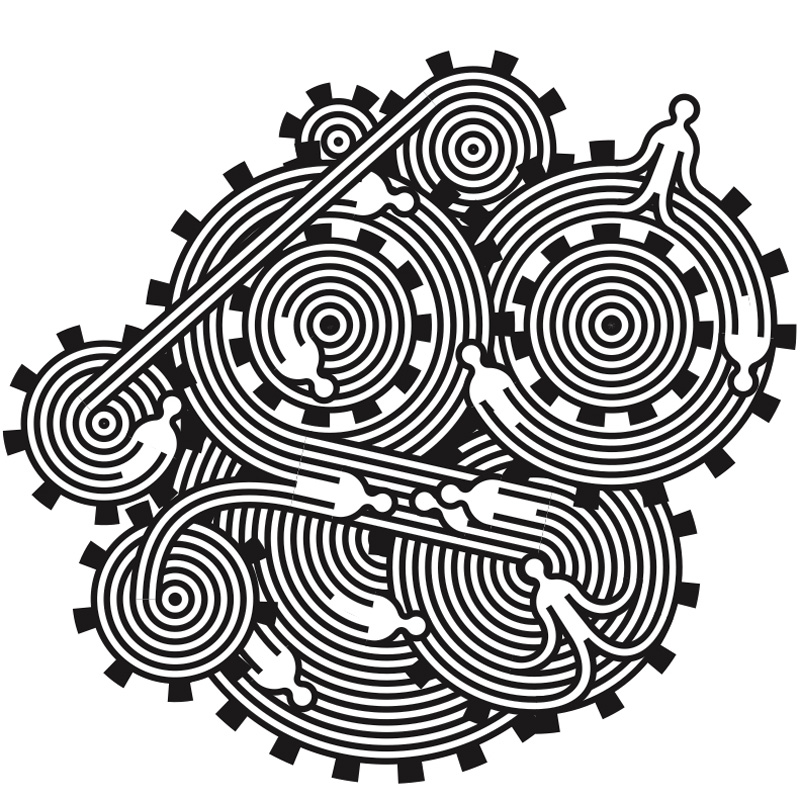Holotopia: Power structure
H O L O T O P I A: F I V E I N S I G H T S
Power structure
Powered by ingenuity of innovation, the Industrial Revolution revolutionized the efficiency of human work. Where could the next revolution of this kind be coming from?
We look at the systems in which we live and work. Imagine them as gigantic machines, comprising people and technology. Their function is to take people's daily work as input, and turn it into socially useful effects.
While the ingenuity of our innovation has been focused on small gadgets we can hold in our hand—we have overlooked this incomparably more important creative frontier.
We will here be taking about the very heart of our matter: Innovation, understood as "using our creative abilities", is what drives our civilization or 'bus' or societal and cultural evolution forward. The value or the rule of thumb we are using to direct our creativity is to rely on free competition, or the market. How well does this serve us?
Stories
Power structure consequences
A costly oversight
How much did ignoring "the systems in which we live and work" cost us?
On Page 4 of the article The Game-Changing Game–A Practical Way to Craft the Future we answered this question by a summary of our Ferguson–McCandless–Fuller thread, of which we here provide highlights.
The costs are systemically caused
A quick look at David McCandless' Billion-Dollar-o-Gram 2009 will show that the costs of two issues ("Worldwide cost of financial crisis" and "Iraq & Afganistan wars total eventual cost") dominate the image so dramatically, that the costs of issues such as "to lift one billion people out of extreme poverty", "African debt" and to "save the amazon" seem insignificant in comparison.
We tell the story of Charles Ferguson's two award-winning documentaries to highlight—as he did in in his films—that those two issues were systemically caused. Or in other words "inside jobs", as title of Ferguson's second film suggested.
We can end scarcity
Having predicted that by the end of the century science and technology would have advanced sufficiently to enable us, the people on the planet, to "end scarcity" and scarcity-driven competition. In 1969 Fuller was proposing to the American Senate his a computer-based solution called the World Game, whose purpose was to enable the global policy makers to see the world as one, and collaborate instead of competing.
The other two stories in this thread suggest that Fuller may have been right.
Power structure devolution
Competition vs. collaboration
Now, fifty years later, we still rely on "the survival of the fittest" or the "free competition" to direct our creative efforts, give direction to our 'bus', and even decide how the systems in which we live and work are to be structured. How well did this serve us?
On The Paradigm Strategy Poster (which was one of the forerunner prototypes> to Holotopia) we used the [http://kf.wikiwiki.ifi.uio.no/CONVERSATIONS#Chomsky-Harari-Graeber homsky–Harari–Graeber thread to provide a poignant answer to this all-important question. Once again, we here provide highlights.</p>
The survival of the fittest favors the most aggressive systems
<p>The story of "Alexander the Great", as told by Graeber, has all the elements we may want from a real-life parable:

